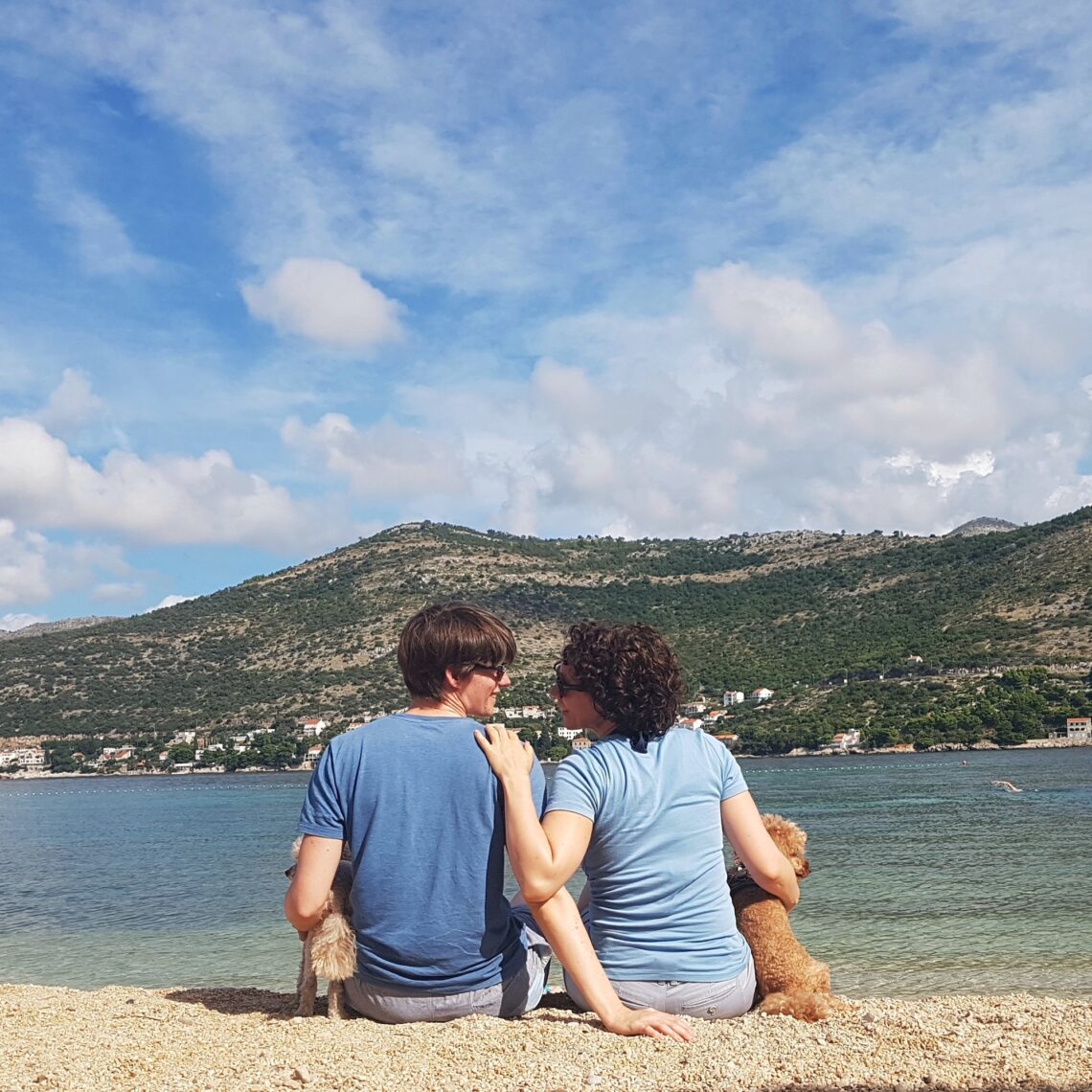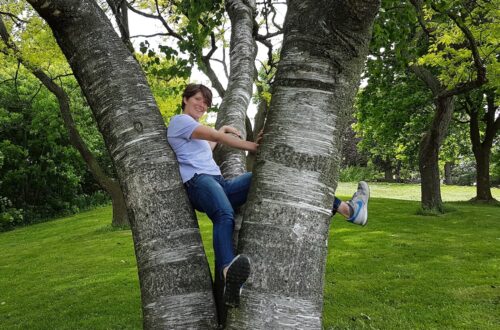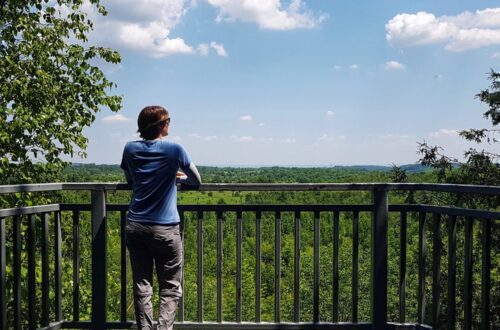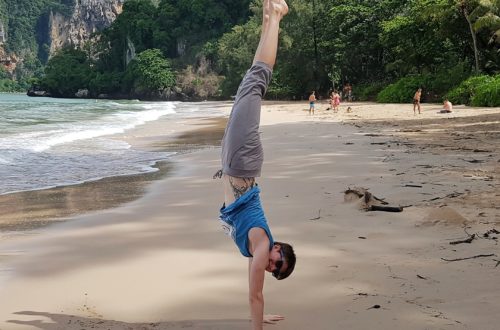
Why You Shouldn’t Travel Full Time
Downsides Of Retiring Early To Travel
We spend a lot of time professing our love of full-time travel…and we do love it. It’s exhilarating to arrive in a new city that we’ve never been to before and discover everything it has to offer. And then a month later we hop over to our next destination for a whole new adventure. This is all part of why life in early retirement is so great.
But, in truth, our lifestyle isn’t always perfect or even all that easy. Even though we love exploring new cultures and landscapes and trying new foods, there’s a lot going on in the background.
We’re constantly planning logistics to get in and out of countries; we have to find an airbnb we can be happy in for a whole month; and, when that month is up, all of our worldly possessions need to be crammed into a couple of suitcases.

Always planning
The first big downside of full-time travel: we are constantly planning. Every time we move to a new location — and we move basically every month — there’s a whole new set of research to do.
When we first headed out on this adventure, we had a specific list of all the countries we wanted to visit and in what order. But of course, no one’s 2020 went according to plan. So every time we need to pick a new destination, we need to start by pulling out a map of the world and evaluating which country makes the most sense given the experiences we value and the weather at that time of year and now…COVID rates and travel bans.
The next planning challenge is our transportation. Sometimes it’s a bit easier if we’re just moving from one city to another in the same country. In Croatia, when we moved from Dubrovnik to Split, it was a straightforward four-hour drive in a rental car. But if we’re headed to a whole new country, that’s when we need to get serious about planning including means hours of research looking at different flight combinations.
At the same time, we’re trolling through Airbnb listings trying to find apartments that meet our needs and are at the right price. That comes with its own set of challenges which we’ll get to in a moment.
Given all the uncertainty with travel bans and lockdowns, we’re only booking one or two months in advance. So for a few days every month we need to flip into research mode and come up with our next set of plans. And that can sometimes get in the way of enjoying where we are now.

Living out of a suitcase
The next downside of traveling full time after early retirement: living out of a suitcase. We each have one large suitcase and a backpack and that’s it. Everything we have for life on the road has to fit or it gets left behind.
This means that we can’t accumulate anything; there’s no room for souvenirs or mementos or anything that doesn’t have an immediate practical use.
It also means that we’re stuck with extremely practical wardrobes. There’s no room for nicer things that we only wear occasionally. In fact, I’ve been carrying around my favourite pair of dress shoes for the past year that I haven’t worn once. I know that sooner or later I’m going to have to make a decision about them because we just don’t have the room for deadweight.
Living in Airbnbs
We’ll admit it: we’re not 20-something year old backpackers who are happy to crash in a hostel for months on end. Until very recently we were working professionals with a comfortable life in a very nice condo.
When we choose an airbnb for a month long stay, we want something equally nice — especially because we don’t have another permanent home to go to when our travels are over. Anywhere we stay is our home. And we’re willing to put more of our budget towards it, like we talked about in this post and video about the surprises we faced in our first year of early retirement.
The challenge is that no matter how nice an apartment looks in the photos, each place always comes with its own quirks. There’s always that moment of truth when we walk into a new apartment and discover what’s waiting for us. For example, in our gorgeous apartment in Athens, the shower was so small that I could barely turn around and I’m a small person.
And in our lovely traditional apartment in Florence, it was the bed that was small. Instead of a full-sized queen or double bed suitable for two people, we had two single-and-a-half beds — a size that we had no idea actually existed.
There was even one time when we arrived at an Airbnb in Turkey and almost immediately burst into tears at the thought of living there for a month. It was freezing cold, damp and totally run down. We got in touch with Airbnb right away and fortunately they helped us with an immediate cancellation and refund.
A new bedroom every month
Whenever we used to go on vacation, we were always happy to come back home at the end of it for a good night’s sleep in our own bed. Well, we don’t have that option anymore. Each month, we have a different bedroom, a different mattress and a different set of pillows. Not to mention any new sounds outside and any light that might be coming into the room. All of this can affect our quality of sleep.
In Toronto we stayed in a stylish apartment with a nice bedroom that had only one drawback: it had no air conditioning and we just happened to be going through one of those record-breaking heat waves at the time.
In Fethiye, Turkey, it was the opposite situation. We had no source of heating in our bedroom and some nights in January were so cold that we ended up wearing sweaters in bed.
A new kitchen every month
We also have the challenge of cooking in a new kitchen every month. No matter how well equipped the listing claims to be, almost every Airbnb is missing something when it comes to the kitchen. That same Airbnb in Toronto also came with just one tiny frying pan that was only large enough to cook a single egg. The apartment also had only three forks so we ended up having to buy a few more at the local dollar store.
We also stayed at an Airbnb in Ukraine that had a full oven but it wasn’t wired up to function…only the burners worked. Even more importantly, the apartment also lacked any way to make coffee, which is a huge gap in our book. Fortunately, we carry a travel-sized coffee filter with us so it wasn’t the end of the world.
Grocery shopping
When trying to stock our kitchen with grcoeries in a new country, first we have the challenge of figuring out which stores have the range of groceries that we’re looking for. We often have to visit a few before we find the right fit. And once we’re in the store, we need to try to make heads or tails of the products.
Often we’re standing in the aisles scanning labels with Google translate trying to decipher the packaging and still making mistakes. One time we tried to buy yeast so we could make bread but ended up with baking powder. And another time we thought we bought butter but it actually turned out to be yeast. Clearly buying groceries in new countries takes a lot more time and effort than popping down to the local supermarket at home.
Environmental awareness
On a related note, we often struggle with the different approaches to plastic packaging and recycling programs in each country. As we’ve traveled, we’ve seen a lot of variation in the local practices.
In Italy, for example, we were really impressed with biodegradable produce bags that everyone used and the green waste composting program. In most other places, however, we’ve come across food packaged in a ton of plastic and often a complete lack of a formal recycling program. We find this challenging because we want to be good global citizens but often find that we lack options to do the right thing for the environment.
Those are a lot of downsides but we still find full time travel to be totally worth it. Despite any challenges we love the excitement and adventure of being in a new location every month and getting exposed to new cultures.
Our past year of full time travel has helped us learn so much about the world and ourselves. The longer we travel, the more we grow, even if we have to sleep in an uncomfortable bed every so often.





2 Comments
Pingback:
Pingback: